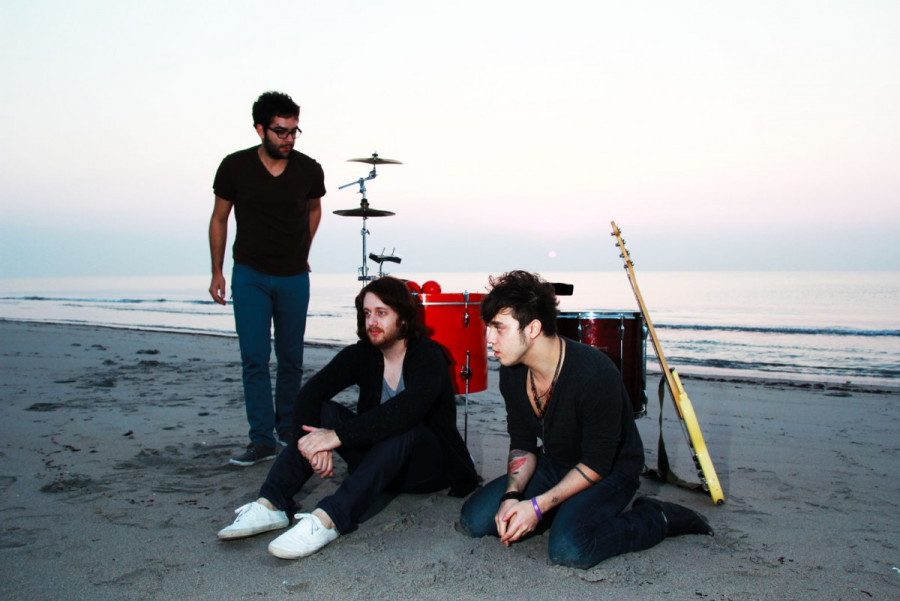Rage Against the 1%
Young Circles Raise Funds for Occupy
Protest music need not be produced by a John Lennon-type performer to get the world’s attention anymore. Using their Bandcamp account, Miami’s Young Circles voice their support for the Occupiers by donating all revenue from their single “Ninety-Nine Percent” to Occupy Wall Street.
As an independent band evolving from rough rock ‘n’ roll to a genre-bending fuzz/soul/folk sound, not much would be a better fit to score the soundtrack to the revolution.
“We had this concept to take everything we love from music, everything that’s diverse about music, and take all these things and mix it around in a pot, where the only thing that’s consistent is the beat,” said singer/guitarist Jordy Asher. “We wanted to focus on rhythm and percussion and movement.”
The band is pulling influences from across the board, from bluesy, psychedelic vamps to electronic grooves—and don’t forget the odd pop hook. They layer percussion, acting as both ornament and foundation to their sludgy garage rock.
Their latest shows have ended with drumming in the crowd, the band passing sticks to an audience eager to engage in the rhythmic climax of “Jungle Habits,” the title track off their debut LP.
While tracking their follow-up record, the band got the idea of how to support the Occupy movement.
“[Ninety-Nine Percent] was the second-to-last song we recorded for the new album,” said Asher. “Antonio [Gonzalez], being the most politically active person in the band, he was trying to get me to pay attention [to the movement], but I was very cynical towards the prospect of protesting.
“I felt that in protesting, there was nothing you could really do about it, that there would always be someone bigger who could just step on your throat and kill whatever movement you were doing. I saw it happen with the anti-war protests in the early 2000s, and I’ve seen it with my friends that go to animal rights protests.”
It wasn’t until Asher saw just how far the initial media blackout could stretch that he decided to put his efforts behind the movement.
“The tipping point was September 20th. Antonio asked me to make him a graffiti stencil that said ‘Wall Street’ that he could graffiti under stop signs,” he said. “I made it for him and emailed it with a subject line that just said ‘Wall Street.’ About two minutes later my email account was locked for about 25 minutes, ‘undergoing maintenance.’ After, my girlfriend and a couple friends tried sending me a link to the Occupy Wall Street website, I never got any of them.
“Someone sent me a video that Yahoo was censoring email; there’s this video of someone trying to send a link to Occupy that won’t get sent, and then deleting it and sending a Tea Party site that goes through just fine. This was the first time I felt that my freedom as a human had been literally infringed, that someone was saying, ‘You’re not allowed to see that.’ Since then we’ve been heavily involved.”
Their single “Ninety-Nine Percent” is a rough, percussive anthem, with Asher’s distorted voice alluding to protests in France in 1968 that began with occupations not so different than what’s going on around the world today. While politically seen as a failure, the protests dynamically changed the social face of France, one less dependent on old ideologies and religion.
“You can tell that people are threatened,” said Asher. “The upper one per cent, or whatever you want to call them, have something to worry about. I find the people that disagree with the movement the most are people that are part of the 99 per cent but they feel the movement threatens their stability.”
And that may be the greatest challenge this movement has to face, when what they’re asking for may seem frightening and radical to the middle class. But while the occupation continues to change political discourse in the United States, the occupiers need help to keep warm and fed. With winter coming and police confiscating generators in Zuccotti Park, using music to collect aid may be the most productive thing an artist can do to strengthen the protest.
“Whether music happens for me as a career, I don’t give a shit because I see what this has the potential to do,” said Asher. “We took a big risk being part of a political movement, which will mostly make us untouchable to record companies that don’t want to get involved in this, but that doesn’t matter.
“Getting ahead in life, I think, is what can get in the way of people’s growth, and that’s why we want to be part of this movement.”
To steam, download and donate, click here.


_600_832_s.png)

11__600_375_90_s_c1.jpg)
2_600_375_90_s_c1.jpg)
2_600_375_90_s_c1.jpg)